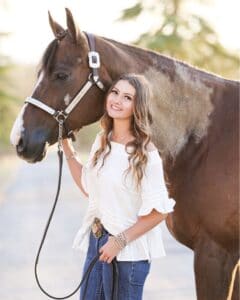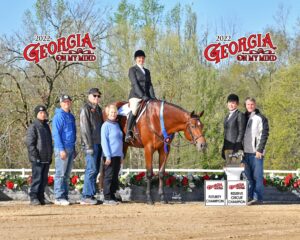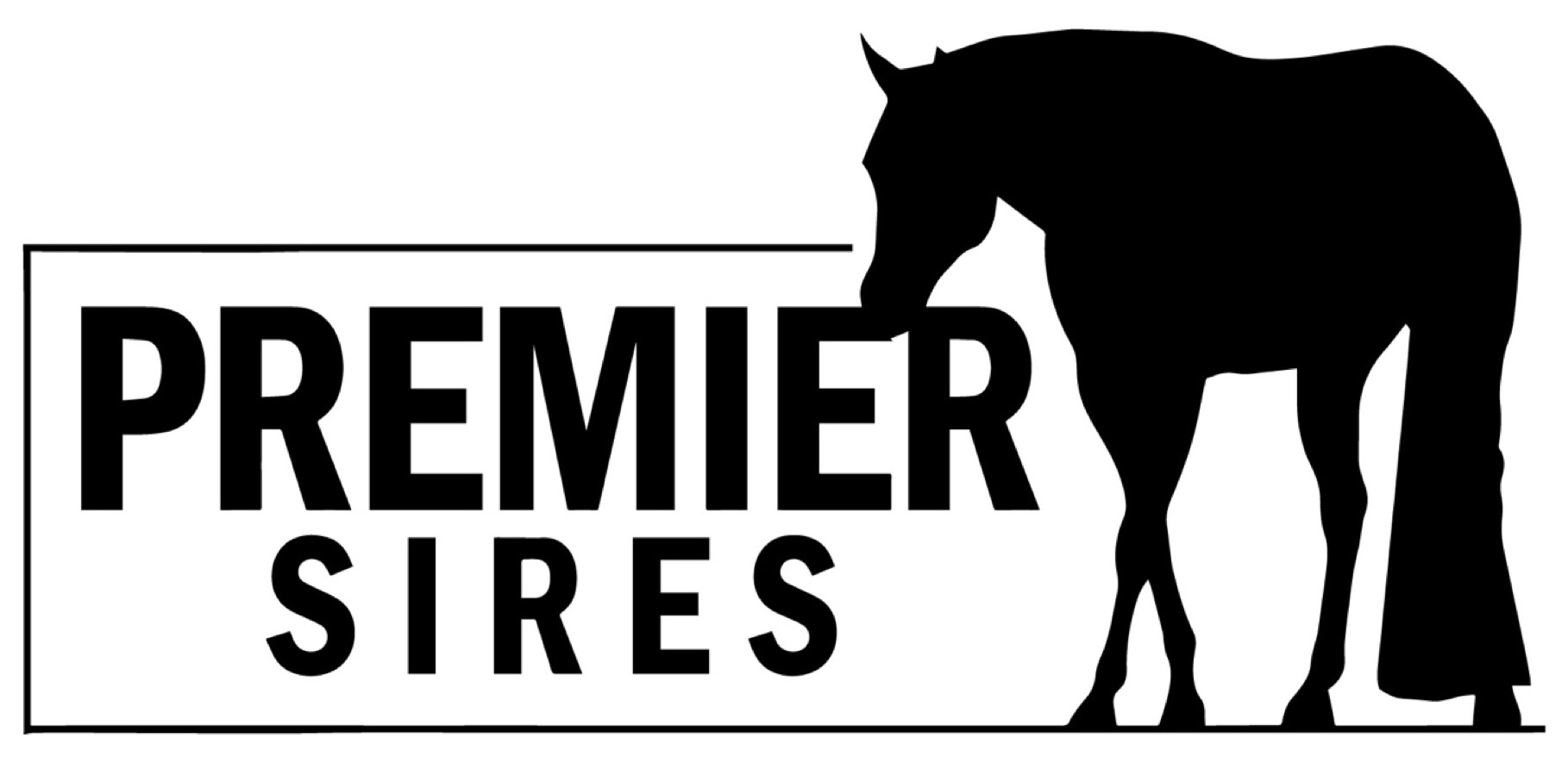Written by Natasha Replogle for Premier Sires.
Most kids competing at an elite level have been riding for most, if not all, of their lives. Although they may come from different backgrounds and have started out in different ways, one thing these kids all have in common is they have spent countless hours riding. And riding. And riding. Many may not even remember a time when their life was not centered around horses and horse shows. All the hours spent in the saddle, the late nights and early mornings, the wins and the losses, teach kids valuable life skills, including responsibility. Showing horses has a unique ability to transform kids from immature youth into responsible young adults.
For many kids, their last year of youth competition is bittersweet. They have made lifelong friends with their fellow competitors, their trainers, and their beloved equine partners. But once they turn eighteen, they must decide what comes next: Ride in college, and if so, where? Attend school without competing for a collegiate team? Give up their non-pro card and start working in the horse industry? Or, quit showing all together?
The right answer is different for everyone. Each person has different goals and different circumstances that will ultimately influence their decision. Several riders who had successful youth careers and have or are currently making the transition to college or a professional career, have kindly shared their stories and advice for other youth riders.
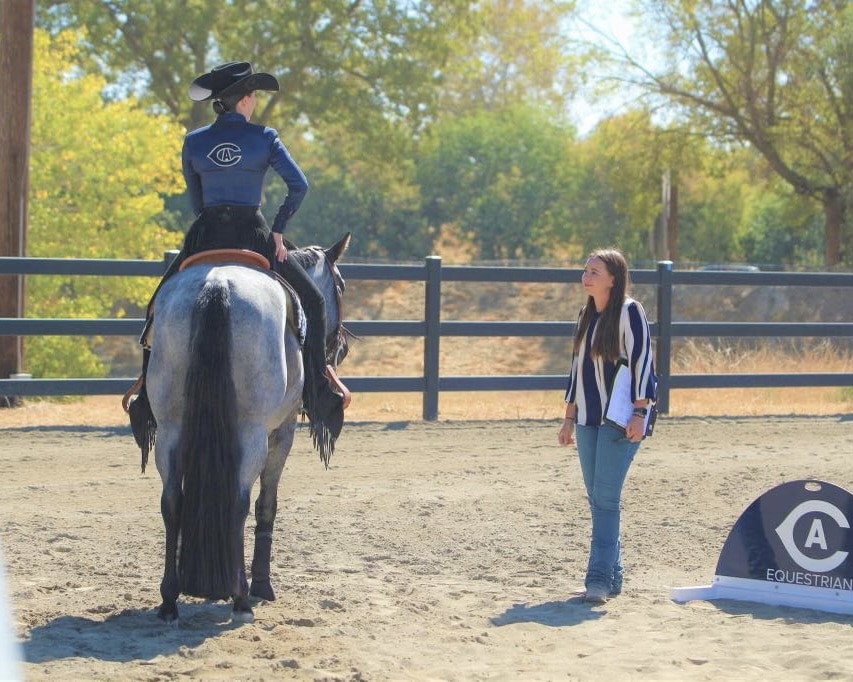
Bobbie Piddock is an NCEA assistant coach at the University of California – Davis. Bobbie originally dreamed of being a horse trainer after finishing her youth career, however her parents insisted she get a college degree first. Bobbie started out her collegiate career riding for the University of Tennessee – Martin before transferring to UC Davis. During her senior year, Bobbie attended the NCAA Career in Sports Forum where she had the opportunity to learn from college coaches from all around the world. It was there that she fell in love with the idea of coaching and after graduation joined the coaching team at UC Davis. For Bobbie, competing on a collegiate equestrian team led her to a career that she hadn’t considered prior to college. Her biggest advice for youth riders who may be unsure of what they want to do, is to figure out what you love and are passionate about and then find a way to support yourself doing that.
Riding for a collegiate equestrian team offers a great opportunity for riders to get a college education while also being able to show, but it is not the right choice for everyone. Some kids don’t like the idea of showing horses other than their own. Others may want to focus exclusively on college without balancing the demands of riding. For these kids, the right choice may be going to school while continuing to compete in AQHA (or other association) shows or taking a break from showing all together.
Hannah Warren is an Amateur competitor who has been riding for most of her life. After high school, Hannah had planned to ride for an NCEA team, however, when touring colleges she fell in love with High Point University, a school which did not have an equestrian team. As a life-long equestrian, Hannah admits she felt some pressure to choose a school with an equestrian team, but because High Point was the “perfect fit” and closer to home where her retired horses lived, it was the right decision for her. Hannah’s advice for kids who find themselves at a crossroads at the end of their youth career is to not rush into a decision. Growing up and potentially leaving home can feel daunting, so she encourages kids to take the time they need to feel confident in their decision. This time in life is an opportunity to try new things or focus on goals in a new way, and Hannah’s advice is to embrace the process.
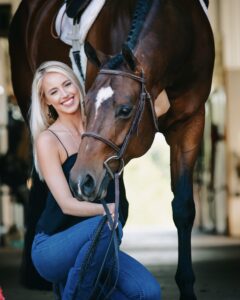
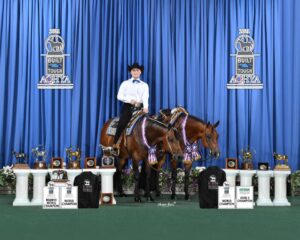
Since men do not have the option of competing on collegiate equestrian teams, the choice for those who choose to go to college is to continue showing their own horses as an Amateur or take a break to focus on school. High school senior Grant Mastin is one of the male riders about to make the transition to college. Grant, who has committed to play football at Texas Christian University, credits showing with helping to prepare him for college. While he hopes to continue showing his own horses, Grant also acknowledges that college and his commitment to the football team will have to be his priority. Balancing school, athletics and horses will require him to rely on his trainers keeping his horses fit and prepared and strategically selecting the shows he attends. Grant feels strongly that showing provided him with skill sets and connections that will help him excel in college and in life. He encourages other young riders to make the most of their youth years and use that time wisely because it goes by quickly.
For some riders, the end of their youth career will be the end of their show career, at least for the foreseeable future. It is no surprise that showing horses is an expensive hobby, and for many youth riders, without the support of their parents, they simply can’t afford it while going to school. Others may choose to put riding on hold while they pursue other dreams.
Colbi Jacobs is a youth competitor who has decided to give up riding competitively while focusing on her education at Stanford, her “dream school.” Although school will be her priority for the next several years, Colbi does not want to give up riding forever and hopes to have a career in the future that will allow her to pursue her passions, which includes showing horses. Her advice for other equestrians trying to decide on their next steps is to do a lot of soul searching and really think about what you want your future to look like and then do what is necessary to achieve that.
While many kids will choose to attend college, whether they ride for a collegiate team, continue showing their own horses or take a break from competing, there are other riders who decide to forgo college, and instead focus on pursuing a professional career in the horse industry.
